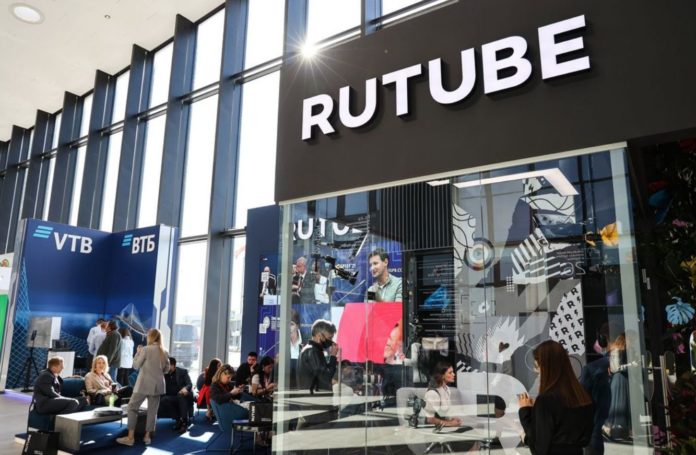Rutube “is a cheap surrogate…won’t ever be able to replace YouTube”
The Kremlin is pressuring Russians to embrace domestic alternatives as part of a larger campaign to influence the narrative surrounding its invasion of Ukraine. Russian authorities have set firewalls across a number of Western social media platforms and have threatened to do so in the future. Now they must persuade Russians who have grown accustomed to the freedoms of YouTube and Instagram that regulated local social networks can provide lucrative business opportunities and similarly enormous audiences. They aren’t simply cheap knockoffs, though.
Last month, the Russian Federation’s Ministry of Digital Development announced that it was adopting emergency measures to bring attention to domestic social-networking apps. Rutube, Russia’s version of YouTube, and Fiesta, an Instagram-like app, have seen a massive increase in downloads since then, as have apps that allow individuals to access Western social media channels.
After their owner, Meta Platforms Inc., imposed limitations on Russian media outlets, the country’s communications authority, Roskomnadzor, barred Facebook and Instagram last month. Meta and other social-media firms have also halted advertising in Russia, making it more difficult for content creators to make money from their Russian accounts.
“Our bloggers have to leave foreign platforms—maybe that’s OK,” said Prime Minister Mikhail Mishustin earlier this month.
Russian programmers and brains can develop Rutube and VKontakte, a Russian equivalent of Facebook, he asserted. “This will return our youth and give us our own field,” he stated, citing a dearth of effective monetization opportunities.
Users and content providers are in the crosshairs of the Kremlin’s push to promote Russian upstarts over Western platform operators. While people all across the world are flocking to YouTube, Instagram, and other social media platforms for news and firsthand stories of the violence, Russia has made such activity more dangerous. The government enacted a law that threatens anyone who publishes false information regarding Russia’s invasion of Ukraine, which the Kremlin refers to as a special military operation, with prison time. Both traditional and social media are covered under the law.
With the government’s support, Gazprom-Media, a subsidiary of Russian energy giant Gazprom PJSC and the owner of Rutube, has been driving Russia’s push to establish social-media alternatives. Gazprom, which owns VKontakte through its insurance arm Sogaz, released Yappy, a DIY version of TikTok, in November. Dmitry Peskov, a spokesman for the Kremlin, stated earlier this month that money would be invested in Rutube to make it more user-friendly.
These initiatives have yielded some positive results. According to app-analytics firm Sensor Tower Inc., Fiesta, which launched in November 2021, ranked No. 1 in downloads among top free iPhone applications in Russia for five days last month on Apple Inc.’s App Store. According to Sensor Tower’s data, Rutube received 1.1 million downloads in Russia last month from both Apple’s App Store and Alphabet’s Google Play, while Yappy received two million downloads since the beginning of February.
Despite this, Russian users continue to use foreign platforms. According to estimates provided by analytics firm Similarweb Ltd, Russian web browser users made approximately two billion visits to YouTube last month across mobile online and desktop.
People have been flocking to programs and browser extensions that allow them to access newly blocked social networks. According to Top10VPN.com, a London-based research firm, demand for virtual private networks, or VPNs, increased by about 2,700 percent compared to the normal daily demand in the week leading up to the start of the invasion of Ukraine. According to the report, the Kremlin has blacklisted over 900 websites related to the conflict. Instagram received 157 million visits from Russian web users, according to Similarweb, based on the same criteria as YouTube.
The local options simply do not impress some Russians. Veniamin Prozorov, a 30-year-old graphic designer in Moscow, said he had no plans to leave YouTube, which he uses for fun and alternative viewpoints to Russian state media. He also uses Telegram, an encrypted network, and Twitter, which he accesses using a VPN.
“I unequivocally will not go to Rutube because it’s a cheap surrogate that won’t ever be able to replace YouTube,” he said. “I tried to use it but I had an extremely negative impression from the quality of the video and content that was posted.”
The country’s platform alternatives aren’t large enough for some content creators in Russia to make a life. They also don’t expect their loyal fan following, which they’ve built up over years on mainstream apps, to immediately migrate to Russian networks.
The proprietor of the jewelry company Copine, Lilia Khazhieva, handled the majority of her business on Instagram. She had ambitions to grow into Europe, and she had been invited to showcase her jewelry in showrooms in France and Italy after connecting with her on Instagram. She can’t place targeted advertisements on the platform anymore, which means she can’t grow her audience.
In response to YouTube’s decision to ban Russian state media channels, Russia warned that YouTube could be blocked. The company says it doesn’t allow content that “minimizes or trivializes well-documented violent events.” “YouTube has apparently signed its own verdict,” Russian Foreign Ministry spokeswoman Maria Zakharova said after YouTube suspended the Duma’s channel earlier this month, adding “Download content, transfer to Russian platforms. And quickly.”
The suspension of ad monetization on YouTube in Russia has also impacted the income of Latvia-based YouTuber Stas Davydov, who has nearly six million subscribers in the country. Before the war, the 34-year-old claimed to earn around $2,700 every month through YouTube. In March, he earned approximately $650. While his viewership hasn’t reduced considerably, he claims that many Russian advertisers have stopped buying ads.
He took a week off from uploading any videos to YouTube before returning to entertainment. He did make one minor exception: he posted a video on how to set up a VPN to get through Russia’s firewalls.
“It’s the thing everyone in Russia wants right now,” Mr. Davydov said.
Image Credit: Getty
You were reading: Putin’s homemade alternatives fail to impress Russians
